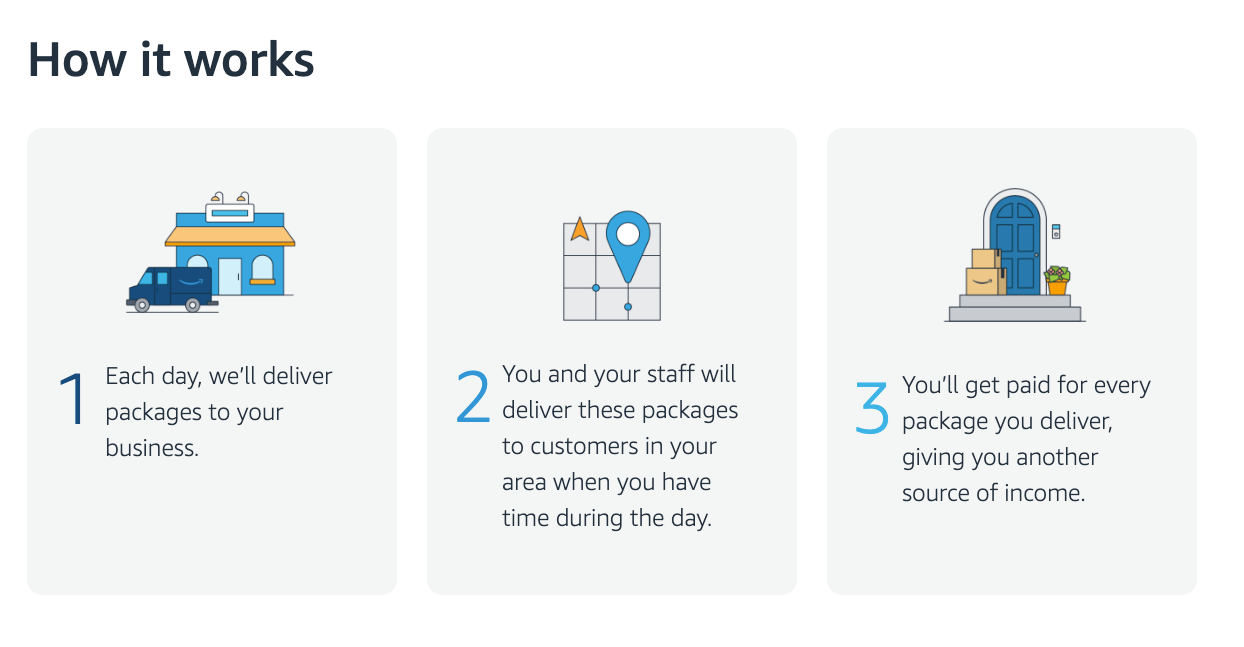Google Perspectives, Amazon Last Mile, Content Moderation Collision

Perspectives on Google's Struggle
Google has been battling the perception its SERP quality is in decline, filled with ads and "SEO chum." Google's Helpful Content Update, E-E-A-T standards and AI efforts are all attempts, at least in part, to address the issue of search quality and offer more utility to users. A number of tech writers have recently decried the possibility (or inevitability) of lower-quality, AI-generated content becoming more pervasive and the rise of AI-content farms. An adjacent position, expressed in a widely cited Tom's Hardware piece, argues that SGE is highly derivative and essentially turns Google into a "plagiarism engine." One user response to the perceived search-quality decline has been a flight to social content (e.g., Reddit, TikTok). Enter Perspectives, introduced at Google I/O as part of its AI related announcements. The new filter aggregates relevant social content from YouTube, blogs, TikTok, Quora and Reddit – lots of Reddit – and potentially others. At least for now, it presents human-generated and arguably more "authentic" content. Its objective is to give users more options, offer more video and keep people on Google.

Our take:
- Perspectives, like SGE, is primarily defensive, an attempt to preempt users from seeking out alternative information sources (e.g., TikTok)
- Perspectives isn't yet live on desktop. It remains to be seen how much usage there is; the filter is very prominent on mobile.
- There are obvious near and medium-term SEO implications. But everything will depend on how users respond.
Amazon Outsourcing Last Mile
Amazon has introduced Amazon Hub Delivery, which asks local businesses to deliver packages for the e-commerce giant. After building the largest logistics and delivery service in the US, this new initiative appears to be an effort reduce costs and outsource the "last mile." The company reportedly piloted a similar program in India years ago. Amazon says that participating SMBs can earn up to $27K per year, which Axios estimates would amount to roughly $2.50 per package delivered. It's pitched to business owners as a "win-win," a kind of side hustle to gain "some extra income" (emphasis on the word "some"). In order to blunt criticism of its quasi-monopoly status, Amazon frequently presents itself as a champion of small businesses. And there's some truth in these claims; however, there's considerable evidence Amazon exploits and harms SMBs through its business practices and its market dominance (e.g., here, here, here). Amazon may control as much as 57% of total US e-commerce and is the largest retailer in the US by gross merchandise sales. While consumers consistently report wanting to support local businesses, they often default to Amazon.

Our take:
- There's something very unsettling about this: creating local delivery vassals.
- SMBs whose businesses may have been adversely impacted by Amazon are now being asked to become part of its delivery infrastructure.
- The world is not black and white; some SMBs do thrive on Amazon but there's no question the company has become too powerful.
Content Moderation Collision
There's a content moderation car crash ahead between US tech companies and EU regulators, about to enforce the Digital Services Act (DSA). Among the many things the DSA seeks to regulate are hate speech and disinformation. (Fake reviews are also in its sights.) US tech companies have been laying off personnel responsible for online safety and content moderation. Google's YouTube also recently relaxed its misinformation policy. And there's been a big increase in hate speech and disinformation in the wake of some of these moves (e.g., Twitter, Facebook). In the US, Section 230 protects tech companies from liability for user-generated content. The DSA goes in the opposite direction, creating penalties for failing to sufficiently moderate content in the EU. Fines can be 6% of a company’s global revenues: $16.8B for Google, $6B for Facebook and a modest $264M for Twitter. Repeat offenses could cause bans. Most social media and tech companies are not moderating content rigorously and/oor rely on imperfect AI tools. Stay tuned.

Our take:
- There are real-world consequences of online disinformation and hate speech.
- Twitter has stated its intention to comply with the DSA, but there are questions about whether it can given current staffing levels.
- Question: how strict will DSA enforcement be? The EU talked tough on privacy (GDPR) but so far enforcement and penalties have been weak.
Recent Analysis
- When Is the Right Time to Ask for Reviews? by Mike and Greg
- Near Memo special edition: Overture Maps Foundation is building the future of digital mapping.
Short Takes
- Moz: 12 local search developments in Q2 2023
- New Google Business Profile "by owner" button.
- Product images in Google SERPs getting bigger (test).
- Fake 1 and 5 star reviews slipping by Google algorithm.
- Spotted: links to stores in Google SGE results.
- Google cuts jobs as it ingests Waze into Google Maps.
- ChatGPT: Bing now built into iOS app for paid users.
- Use ChatGPT to generate product descriptions at scale.
- Google Ads explainer: Value Based Bidding.
- INFORM Act cracks down on marketplaces to deter IRL retail theft.
- Major AI healthcare use case: help doctors with paperwork (NYT).
- EU law meant to protect journalists becomes surveillance tool.
- Study: 75% of AI apps share user data with third parties.
- Birdeye reaches $100M ARR; Gusto hits $500M.
Listen to our latest podcast.

How can we make this better? Email us with suggestions and recommendations.

